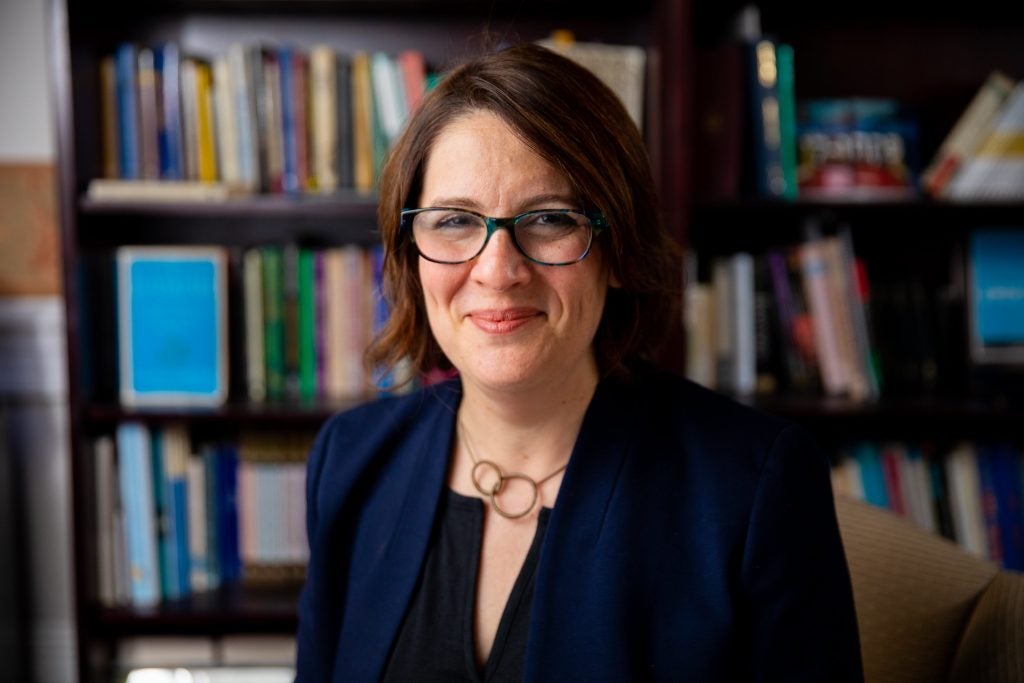Prison Scholars Program: Teaching Jewish Wisdom for a Broken World
Recently, Georgetown University’s Prison Scholars Program at the DC Jail received a $1 million grant from the Andrew W. Mellon Foundation to expand the program and begin offering bachelor’s degrees. The program is one of the few university programs that provide prisoners with the possibility of earning a bachelor’s degree and remains the only co-educational prison education program in the nation.
Campus Ministry’s staff writer, Jonathan Campo had the opportunity to speak with Rabbi Rachel Gartner, Director for Jewish Life, who teaches with Prison Scholars Program, about the program and what it offers.
The following conversation has been edited and condensed for clarity.
Tell us a little bit about yourself.
I’m in my ninth year as Director for Jewish Life here at Georgetown. I’ve had a longstanding interest in issues of criminal justice. Last year, the DC Prisons and Justice Initiative offered me the opportunity to teach a class, and so I very eagerly replied: when do I start?!
Could you describe the course you’re teaching?
I’m teaching a not-for-credit course called “Jewish Wisdom for a Broken World.” For each session, I bring some of my favorite Jewish teachings and I ask students: What is the wisdom in these teachings? What is the brokenness in ourselves or in our relationships or in our society that these teachings can engage or address? What, if anything, in these teachings, are personally meaningful to you? And lastly, I offer a meditation or a chant, as an opportunity to begin to try and cultivate in ourselves the wisdom that the materials we’ve studied communicate.
Would you describe your experience with these students?
Folks in the class are as thoughtful as any main campus student. And the earnestness with which they approach the material is beyond anything I’ve seen in any other academic setting. They are thirsty for meaningful intellectual discourse and for an opportunity to express the things that are really important to them.
What inspired you to pursue teaching with the Prison Scholars Program?
I’m there for a few reasons: First, because I believe profoundly in the ability of people to transform, and that we can never give up on anyone. Second, I know that there are fundamental inequalities and injustices and prejudices that riddle the criminal justice system and that in far too many cases, incarcerated people have themselves become victims of an unjust system. I believe so deeply in this program that it’s worth moving through the hard stuff to participate in it.
But I don’t want to pretend it’s not challenging emotionally. You see people in shackles who clearly should instead be getting treatment for mental health issues, you learn about the ways people with addictions are treated like criminals instead of as people in need of support. You smell what jail smells like. You get close to feeling what being locked up in a cage must feel like. It’s too hot; it’s too cold. It’s way overcrowded.
As a religious person, this experience puts my convictions to the test. It is one thing to believe, along with the core teachings of Judaism, that we never give up on anyone, and that everyone can return to the right path. It is another thing to face directly, people who have done some horrible things in their lives. I don’t usually know what crimes people have committed. I don’t know what brings everybody into the jail.
And at the same time, when I am with my students in the Department of Corrections, I truly see them as the beautiful people that they are. I learn so much about life and resilience from them. And I see up close and personal the way that the scourge of racism, poverty, and discrimination wreak havoc on the lives of real human beings.
What faith traditions are represented in your class?
I have a range of students from a range of faith traditions, and definitely have atheists in the class as well.
What do you hope your students receive from the program?
Providing access to education does a few things. First, it is a way of showing respect, and giving people an opportunity to feel respected. It is a way of beginning to right a wrong (no access to good education) that has prevented [the students] from gaining skills and ultimately living lives of wellbeing and integrity. I have come to see how regardless of the content a teacher imparts, incarcerated students find the experience of being taken seriously as a student and as a human being profoundly transformational. And that in and of itself is a remarkable thing. I think it’s just as much about the getting of the degree and the credentials as it is about the process of being a student that is redemptive and rehabilitative. And that, I learned by doing. That, for me, is what the whole thing is about: not giving up on people, and removing barriers to successful happy lives after they’ve done their time. Which is better for all of us. I am humbled and honored to play even a small part in that story of redemption for us all.
By Jonathan Compo
Jonathan Compo (COL’ 20) is a staff writer for Campus Ministry.
